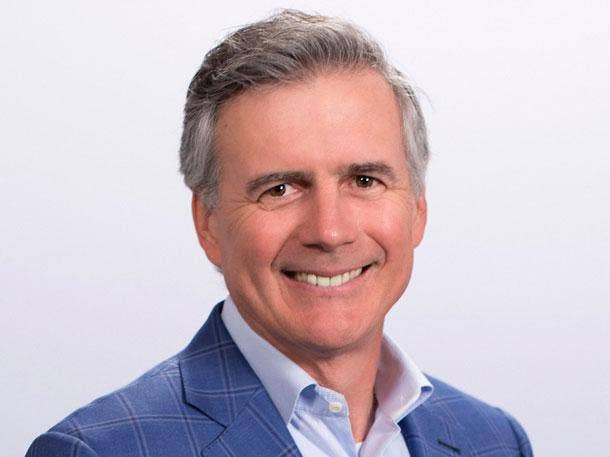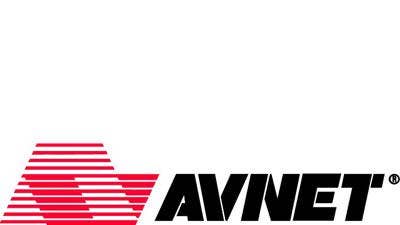CRN Exclusive: Tech Data CEO Rich Hume On The Stock Drop, Advanced Solutions, Services And Cloud Growth

Driving More Advanced Solutions Sales Growth
Tech Data CEO Rich Hume says the distributor is focused on driving more Advanced Solutions sales after high growth in the low-margin endpoint business dragged down margins.
"At the top level, we'll be very focused as a management team on selling more Advanced Solutions as opposed to the endpoints," said Hume. "Obviously, we're going to service both. But to the extent we can shift our sales into more advanced, that's very helpful. And then even within the endpoint portfolio, spending more time on things that have better profit outcomes is a good way to think about it."
Hume's comments came after Tech Data Thursday reported a 10 percent increase in sales to $8.89 billion for its second fiscal quarter ended July 31 – well above the Wall Street consensus of $8.73 billion.
Although net income jumped to $77.7 million, or $2.01 per share on a non-GAAP basis, it was 10 cents per share below the Wall Street consensus of $2.11 per share. That led Thursday to a 14 percent drop in Tech Data shares to $76.26.
During the company's quarterly financial conference call, Hume introduced a new Global Business Optimization (GBO) plan aimed at creating a more agile and nimble worldwide distributor.
The GBO, which comes just three months after Hume took the helm of the Clearwater, Fla.-based distributor, is expected to result in annual cost savings of $70 million to $80 million in the next two years with approximately half of that reinvested to accelerate strategic priorities, while the remaining savings will fall to the bottom line to improve Tech Data's profitability.

What was behind the 14 percent drop in Tech Data's stock price today?
When you take a look at the business, the fundamentals are quite strong. In this particular quarter, we have really strong growth, strong top line. We had issues around the gross profit margin. It really had to do around a more intensive mix within our endpoint business, which is where the predominance of the growth was, year on year.
What do you mean by the endpoint business?
It's the PC ecosystem globally. We segment our businesses in two parts, Endpoint Solutions and Advanced Solutions. As a general rule, think about endpoint as the PC ecosystem and Advanced Solutions being data center motions.

What happened with Endpoint Solutions?
The gross margin profiles in the Advanced Solutions business are much richer than in the Endpoint Solutions business. And so, despite the fact that there was growth in both segments, there was an overwhelming amount of growth in the endpoint business. If you have a larger percentage of your business in that space with the lower-margin profile, then the overall gross margin actually comes down. It's that phenomenon. The fact that the predominance of the growth was within endpoint.
Obviously, the question is, well, what would you like to see? You'd like to see a bit more balanced growth because then you could take advantage of both segments and then have the benefit of the margin opportunity within the advanced segment.
What's driving the big Endpoint Solutions sales growth?
Look at the PC titans in the industry, they're pretty hot right now. HP Inc., Lenovo, Dell, they're all driving some pretty significant growth. I can only give you one person's point of view. I speak with a lot of investors and analysts. But I think it starts with the macro picture of the global economy being strong, and the U.S. economy being strong. [You] end up with more jobs and more people. And with more jobs and more people, there's more technology required to have those people do those jobs.

As the average selling price goes up, does that impact your margins?
The margins generally within each category are reasonably stable. In this particular quarter, we sold more things that have lower-margin profiles versus the average of the endpoint segment. If you think about personal devices around things like phones, etc., having even more accelerated demand within that segment, then those margin profiles are a little bit low.
So as a distributor, what kind of adjustments can you make to protect your margins in that case?
Most importantly, you have to sell things that have better profit profiles. At the top level, we'll be very focused as a management team on selling more advanced solutions as opposed to the endpoints. Obviously, we're going to service both. But to the extent we can shift our sales into more advanced, that's very helpful. And then even within the endpoint portfolio, spending more time on things that have better profit outcomes is a good way to think about it.

What kind of demand are you are seeing in the market?
Right now, demand is very robust. If we shift more of our time on the demand that has the better margin profile, we'll get a better outcome.
This is not a situation, in contrast, where if you have a shrinking pie, you have to move to where the demand is. Rather, this is an expanding pie right now, and so we can be a little more selective about where we spend our time.
The other thing is, you place investments for the future so that you're able to move to higher value.
Can you give us an example?
Within the endpoint business, there are better margin attributes if you are selling technology as a service. … That's something that we're investing in and developing. And to the extent that we grow that business, within endpoint we get a better margin profile. When you get into the advanced business, selling more security, analytics, and even cloud opportunities and hyper-converged opportunities, they also provide better margin opportunities for us.
So first, you work with the sales team in a tactical frame to move to a position where you meet your sales objectives but can sell more profitable parts of the portfolio. And then, secondly, you align your investments into areas that provide premium returns, and then try over time to drive more demand towards those areas that you're investing in.
But you can't just tell your salespeople don't sell that low-end PC or that low-end phone.
At the end of the day, we're going to service our [partners], and we're going to service their needs. But right now, we just need to be a little more selective where there is discretion.

How about Tech Data's services business? How is that growing?
That's absolutely a growing part of our business. It's an area that is strategic to us. We're continuing to increment our investments in that category to grow it going forward. It's a small part of our business currently, but one that has great opportunities going forward.
[Earlier we talked about] investing in areas that are going to give a better financial profile. Services is certainly one of those categories. I always caveat this dialogue by saying we're not interested in services that will compete with our [channel] customers. … And we're interested in services that will complement or assist our [channel] customers in being able to deliver solutions to their end users.
How about on the cloud side of the business?
The cloud piece is actually growing quite well. … We're pretty satisfied about what we've got going on there both from a bringing capability to the market perspective as well as the way it's growing.
What are some places where Tech Data is investing to build and grow its cloud business?
In the cloud business, we have a marketplace called StreamOne. We stood up StreamOne eight years ago. Every year that goes by, we pour more and more investment in there. The good news about StreamOne is that it probably is the marketplace within the channel that services most broadly all of the needs. Within StreamOne, you can go all the way from an Office 365 deployment to a very sophisticated Infrastructure- or Platform-as-a-Service deployment. [In the past, our] primary focus on the platform was around Software as a Service, but we've picked up some really nice assets as we did the acquisition of the [Avnet] TS piece. They brought to the table Infrastructure- and Platform-as-a-Service capabilities and competencies. So now those two things have been brought together so that the scope is broad and wide.

How about on the services side?
We've been doing vendor services on behalf of some of our largest vendors. They've asked us to help manage parts of their life cycle in the market. And so that has been a very good opportunity. That's not necessarily the exclusive focus, but it's one that we've been investing in and growing here most recently.
What's the latest on the Avnet Technology Solutions acquisition?
We announced that we completed all of our major milestones with the integration of Avnet TS. That was a big win for us. Now, as we move forward, where management had to spend cycles on getting that business integrated, [instead] we're going to be focused on deploying our strategy and on executing our business. So we are now one Tech Data, and it feels real good. It kind of completes that 18-month journey.
How do you refer to the Avnet TS business now within Tech Data?
That is part of Advanced Solutions. So we've taken our Advanced Solutions business and Avnet TS data center business [and placed them] all under one roof now. That's part of our three segments now. We have the Endpoint Solutions segment. We have the Advanced Solutions segment. Those are the overwhelming predominance of the revenue. And then we've got a couple of specialized businesses. We have a components business and an audio-visual business and a specialized software business.

Has Tech Data seen any impact yet from the tariffs the U.S. government placed on imports, particularly on imports from China?
No, we have not. And as it relates to that, we see the vendors as being in the front. We would align with whatever the vendors' need was. As you might expect, we really aren't landing products from China as a distributor into the U.S. That's the vendors' responsibility. We'll align with our vendors' needs as we come through that, and as that whole area evolves.
Have you seen your vendors change prices or availability or allocations?
No, really nothing material. I've not seen any real business implications associated with the tariff talks yet.